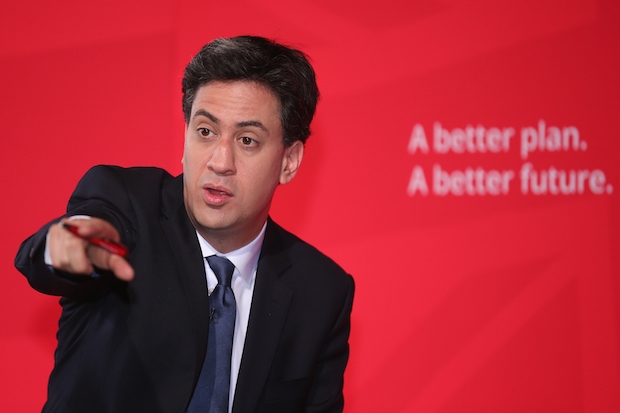The third week of the campaign is going to be all about manifestos. Today, it’s Labour’s turn to launch its plan — while the Tories, Liberal Democrats, Ukip and Greens will take their turns in the coming days. But instead of the traditional strategy for government, folks in Westminster are describing the documents as ‘the opening salvo for coalition negotiations’. To help guide you through the melée of stories and spin, here is a summary of today’s main election stories.
1. The party of fiscal responsibility?
There’s one big story to watch today: Labour’s manifesto. Many inhabitants of the Westminster bubble are currently en route to Manchester for the launch this morning. The central theme is fiscal responsibility, with Ed Miliband asking sceptical voters to ‘trust me on the economy’, with the centre piece promise being a ‘budget responsibility lock’ to ensure the deficit is cut every year. The Guardian describes it as ‘one of the boldest moves by a Labour leader since Tony Blair amended clause IV in 1994’. Every policy in the manifesto will be funded with no additional borrowing, pointing the finger towards tax rises. We already know Labour wants to fund extra midwives with a mansion tax and the party has plans to aggressively clamp down on tax avoidance.
Later today I’ll launch Labour’s 2015 election manifesto. It’s time for a new approach & a better plan for Britain. pic.twitter.com/0e7T4Z0ee6
— Ed Miliband (@Ed_Miliband) April 13, 2015
The first page of our manifesto isn’t a list of promises, but a guarantee: Labour will secure the nation’s finances: pic.twitter.com/Bkeirq7EUr — Ed Miliband (@Ed_Miliband) April 13, 2015
On the Today programme this morning, shadow chancellor Ed Balls declined to say when the deficit would be cleared by, somewhat undermining the credibility part of Labour’s slogan. He also appeared to clash with Jim Murphy by saying ‘yes, there will be cuts outside non-protected areas’ — after the Scottish Labour leader said there’d be no more cuts after 2016. Balls also attacked George Osborne’s £8 billion NHS spending commitment, saying ‘I’ll save the NHS but I’m not going to make promises until we can show where the money will come from – that’s the irresponsible approach.’
Putting Osborne’s failure on cutting the deficit at the centre of its campaign is a good way to rebut the endless Tory mantra of ‘long term economic plan’ and it’s a sign of Labour’s growing confidence that the party feels it can now out do the Tories on the economy. But Labour has a big challenge ahead: Lord Ashcroft’s recent polling said 43 per cent of the public trusted Cameron and Osborne to run the economy, compared to 25 per cent for Miliband and Balls. That’s a long way to make up with just over three weeks to go.






Comments